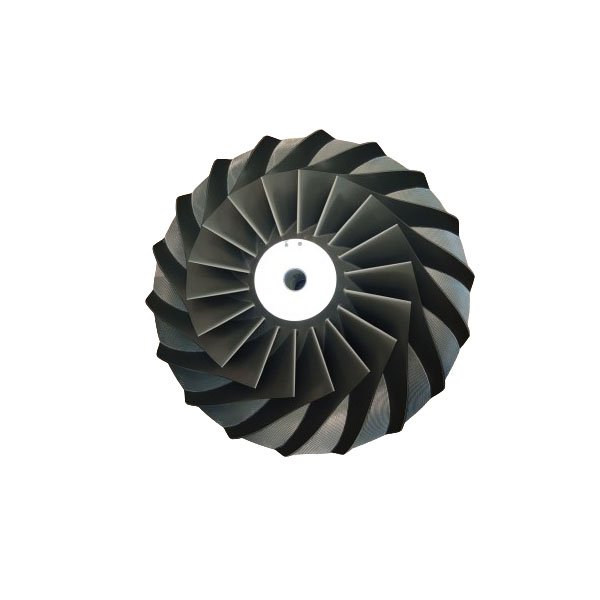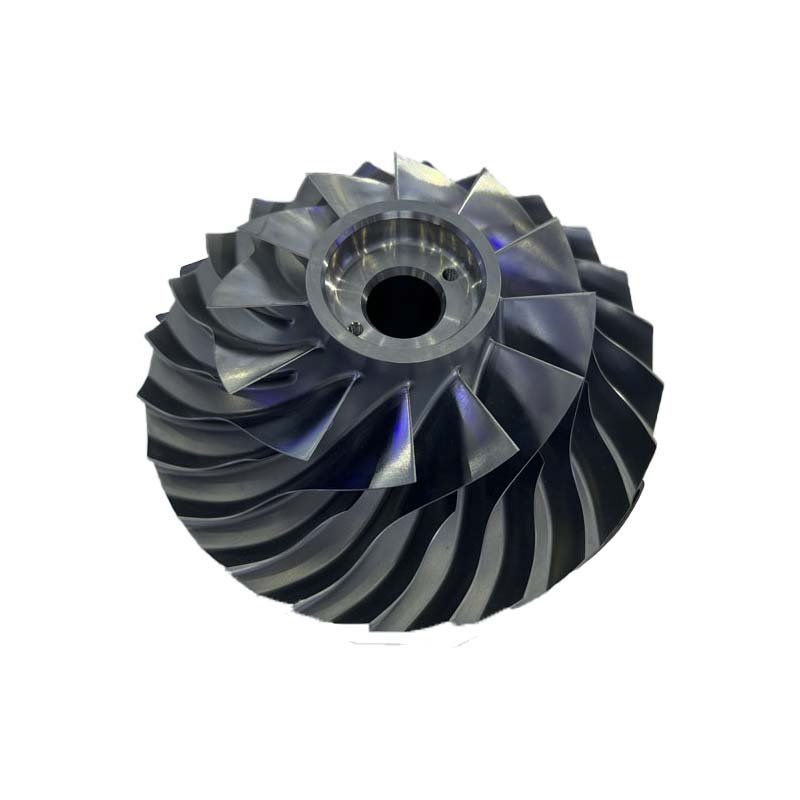The manufacturing process of single crystal turbine impellers includes several key steps: directional solidification casting, single crystal casting and precision machining. Each step has its own unique importance and technical requirements to ensure the excellent performance of the final product in high-temperature, high-stress environments.

Directional solidification casting is a process that controls the direction of metal solidification. Through this process, an impeller with a columnar grain structure can be obtained. Compared with ordinary casting methods, directional solidification casting reduces the number of grain boundaries, thereby improving the performance of the impeller in high-temperature environments.




Single crystal casting is a further development based on directional solidification. By controlling the solidification process of the metal, the entire casting becomes a single crystal. This process can significantly improve the creep resistance and fatigue resistance of the impeller in high temperature and high stress environments.
Precision machining is an essential step in the manufacturing process of single crystal turbine impellers. After directional solidification or single crystal casting process, the preliminary shape of the impeller has been formed, but in order to meet the final design requirements, precision machining is required.


The single crystal structure maintains high strength in high temperature environment, is not prone to high temperature creep, and extends the service life of the impeller.
Due to the absence of grain boundaries, single crystal materials show excellent anti-creep performance under high temperature and high stress conditions, and are suitable for high-temperature operating turbine machinery.
Single crystal materials are not easy to oxidize at high temperatures, and the protective oxide film formed on the surface can effectively prevent further oxidation and corrosion.
Single crystal materials have a higher fatigue life because there are no grain boundaries, which reduces the initiation and propagation of fatigue cracks.
Machining can accurately shape and size the impeller;
Directional casting can align the crystals in a specific direction, giving the impeller better high-temperature mechanical properties and fatigue resistance;
Single crystal casting can ensure that the impeller is a single crystal structure as a whole, further improving its performance
Single crystal cast turbine impellers are an important part of modern high-performance aircraft engines. In aircraft engines, impellers need to withstand extreme high temperatures and high speeds. Single crystal structures can provide excellent high-temperature strength and durability, while reducing the risk of fatigue cracks, thereby improving engine performance and reliability.
Industrial gas turbines also need impellers that can withstand long-term operation under high temperature and high pressure conditions. Single crystal cast turbine impellers can provide longer service life and higher operating efficiency in these applications, which is of great significance for improving the thermal efficiency and economy of gas turbines.
In the energy industry, such as gas turbine power generation and steam turbine power generation, single crystal cast turbine impellers can also improve the energy efficiency and stability of equipment, reduce maintenance costs and downtime, thereby improving the operating efficiency and reliability of power stations.
Single crystal cast turbine impellers are also used in turbochargers, chemical equipment and other mechanical equipment that require high temperature, high pressure and corrosion resistance. These applications usually require high-performance materials and complex designs, and single crystal casting technology can effectively meet these needs.
Part numbers alone are not sufficient to ensure performance.
To guarantee precision and compatibility, please provide:
Drawings or used samples for reverse engineering.